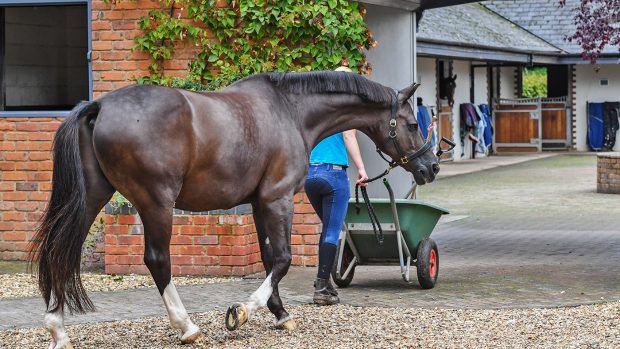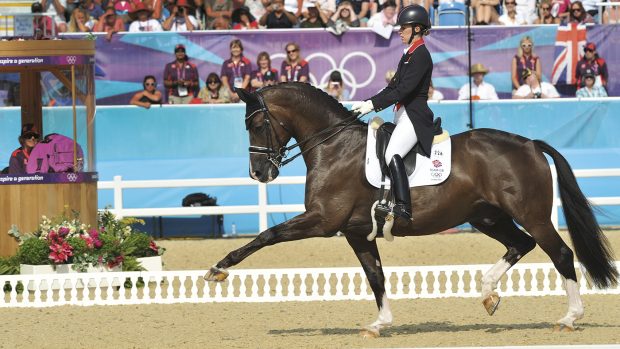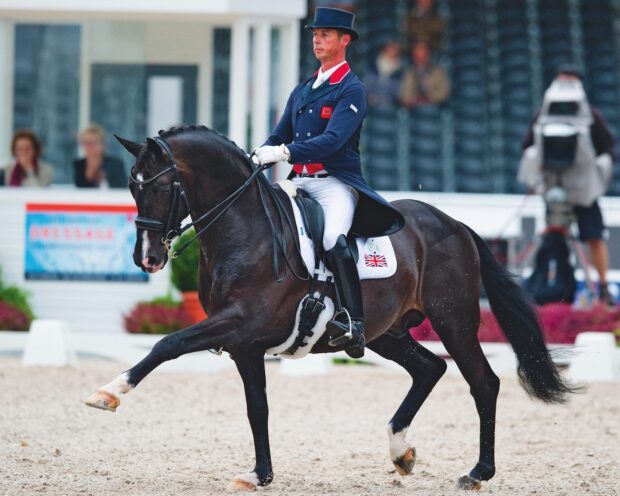We are more aware than ever of the impact of riders’ mental health in dressage and other equestrian sports. Increased awareness and openness around mental health in the horse world is a sign of great progress, but the reality is that many riders are still negatively affected, sometimes without even realising.
No equestrian discipline is immune, but dressage in particular seems to elicit certain mental health struggles among riders, in part due to its nature as a subjective, “judged” sport. Then there is the fact that dressage naturally attracts many people with perfectionist tendencies, all striving to achieve something no one has yet accomplished.
With modern dressage training principles under intense scrutiny, often via social media, and the social licence of horse sport being more precarious than ever, it’s no surprise that emotions run high, and can be damaging.
“Dressage is so particular that its participants tend to attract more criticism, very often from the people inside the sport,” says six-time Olympian Carl Hester. “I think most of us would say that we have been negatively criticised.
“Dressage riders also tend to be more isolated in their training [compared to showjumpers or eventers],” adds Carl, “and a lot of people ride and train on their own, so they don’t have anybody there when things go wrong. I find being a trainer also means being able to listen to riders’ fears and worries around training and competing; what might go wrong, and what others say.
“My plea to everyone in this sport we love is simply to support one another,” he says.
Mental health coach and rider Sylvia Bruce has worked extensively with Riders Minds, the online resource launched in early 2020 by the late eventer and mental health campaigner Matthew Wright and his wife Victoria. Sylvia explains that she has witnessed differing cultures across the equestrian sports that contribute to riders’ experiences, and that it can be hard to detach yourself from the inevitable judgement that dressage demands.
“When it is your performance being judged by another person – as opposed to a showjumping fence being up or down – it all comes down to perception and opinion. But it’s important to separate the person from the performance; it is the performance that is being judged, not the rider – the person – themselves,” she says.
“Mental health is a continuum: positive at one end and poor at the other,” she adds. “Mental health involves all sorts of skills we need, like decision-making and the ability to learn, and can be fantastic when applied positively. But dressage seems to demand that drive for perfection, that perfect 10, when it can feel as though anything else is not good enough. Over time, that can nibble away at a person’s psyche.”
Mental health in equestrian sport: spotting the signs
Sometimes, it can be hard to recognise the creeping signs that your mental health is not optimum, and it’s a fact that most riders spend a lot more time considering their horse’s well-being than they do their own. So, what should we be looking out for?
Sylvia advises riders to learn their own personal “clues” that something is not as it should be. These could involve changes in:
- The way you think, for example constant worrying, difficulty concentrating, or becoming increasingly critical of yourself or others
- Your mood, such as increased irritability, difficulty relaxing or a lack of energy
- Your behaviours – eating more or less than usual, struggling to sleep, developing nervous habits or isolating yourself from others
- Your physical health, for example aches and pains, nausea, headaches or palpitations
She also recommends paying close attention to the type of language you use, and how this might change:
- Words like “should, ought, must, got to” creeping in – these are limiters that can add negative pressure
- Changes in self-talk tone, from encouraging to harsh and angry
- Pay attention to the times when you think or say, “Give me a break; I need a moment; my mind’s not on the job.” These thoughts are usually telling you something
Sylvia is also keen to point out that it is important to differentiate between experiencing occasions when our mental health is not where we’d like it to be, which is normal, and signs of a mental illness, such as depression.
“We all have bad days, but these can tip into something more and it’s important to be honest with yourself if this is the case, to ask yourself how long the bad days have been going on for, and importantly, what to do about it,” she says.
Where to get help
If you’re struggling, there are many places you can turn to for help. These include:
Riders Minds – extensive advice and a confidential hotline
Riders Helping Riders – offering support for victims of bullying
Mind – advice and support for anyone experiencing a mental health problem
Samaritans – offering emotional support to all, 24/7
You may also be interested in…

‘It helps to know that others struggle, too’: Abi Lyle on the power of social media in dressage

Major step forward as riders’ minds to be supported at Badminton

Subscribe to Horse & Hound magazine today – and enjoy unlimited website access all year round
Horse & Hound magazine, out every Thursday, is packed with all the latest news and reports, as well as interviews, specials, nostalgia, vet and training advice. Find how you can enjoy the magazine delivered to your door every week, plus options to upgrade your subscription to access our online service that brings you breaking news and reports as well as other benefits.




